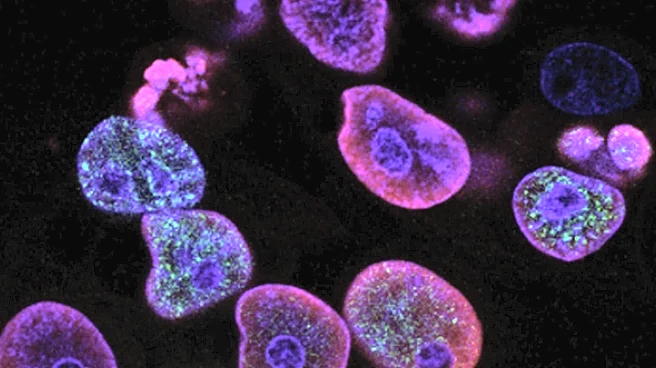What is the story about?
What's Happening?
Three scientists have been awarded the Nobel Prize in Physiology or Medicine for their pioneering work on regulatory T cells (Tregs), which has significantly advanced the development of new therapies for cancer and autoimmune diseases. Professors Mary Brunkow and Fred Ramsdell from the United States, along with Professor Shimon Sakaguchi from Japan, received the prize for their groundbreaking discoveries related to peripheral immune tolerance. Their research has revealed how Tregs prevent the immune system from attacking the body, a finding that has led to a deeper understanding of immune system functions and the prevention of autoimmune diseases. Sakaguchi's initial discovery in 1995 challenged the prevailing belief that immune tolerance was solely due to the elimination of harmful immune cells in the thymus. He identified Tregs as a new class of immune cells that operate throughout the body. Subsequent research by Brunkow and Ramsdell linked a mutation in the Foxp3 gene to autoimmune diseases, furthering the understanding of Tregs' role. These discoveries have spurred numerous clinical trials exploring Treg cell therapies for various conditions, including autoimmune diseases and cancer.
Why It's Important?
The Nobel Prize recognition underscores the critical role of regulatory T cells in advancing medical research and treatment options for complex diseases. The discoveries have paved the way for innovative therapies targeting autoimmune diseases such as rheumatoid arthritis, multiple sclerosis, and type 1 diabetes, as well as strategies to prevent organ transplant rejection. Additionally, Treg cells are being modified to enhance immune responses against cancer cells, offering new hope for cancer treatment. The ongoing clinical trials and research initiatives based on these findings have the potential to transform therapeutic approaches, improving patient outcomes and expanding the scope of precision medicine. The award highlights the importance of continued investment in fundamental research to unlock new pathways for disease management and treatment.














